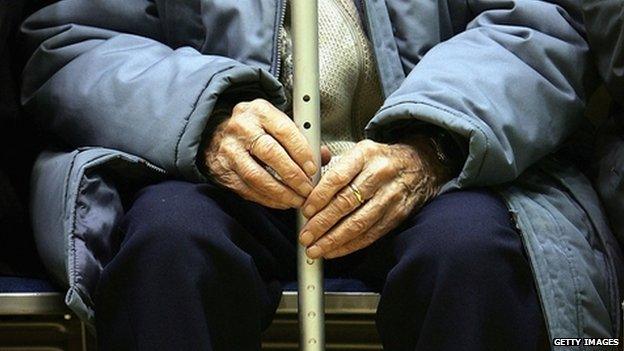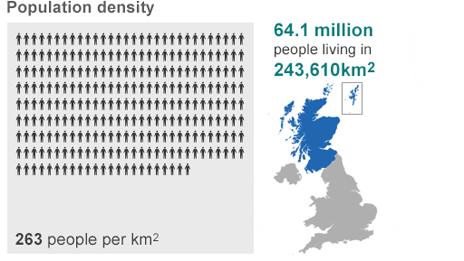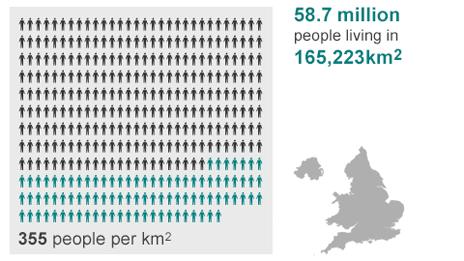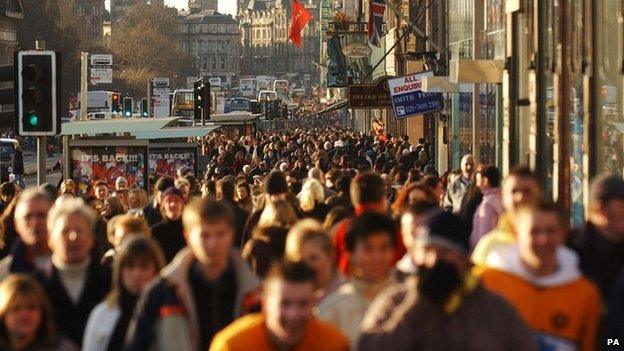Daily question: Does Scotland's population matter to the referendum debate?
- Published
As the people of Scotland weigh up how to vote in the independence referendum, they are asking questions on a range of topics from the economy to welfare.
In this series, we are looking at those major questions and by using statistics, analysis and expert views shining a light on some of the possible answers.
Here, we look at the population of Scotland and whether people numbers matter to the referendum debate.
Do you have a referendum question? Let us know by....
Emailing newsonlinescotland@bbc.co.uk.
We can also be found on Twitter @bbcscotlandnews, external
And on Facebook, external.

How do the population numbers stack up?

This sounds like a pretty straightforward question, but actually the size and make-up of Scotland's population could have big implications on the way it might function as an independent nation.
National Records of Scotland, external state that the most recent population estimate for Scotland was 5,327,700 in June-2013. That's the highest it's ever been, but Scotland's population increase of 0.27% between 2012 and 2013 was the smallest of any UK nation or region.
It's also interesting to note that more people arrived to live in Scotland from the rest of the UK last year than went in the opposite direction.
The total UK population at June 2013 was 64.1 million, so Scotland's population makes up about 8% of the UK total.
What might the rest of the UK look like if Scotland voted for independence? It would of course have a smaller population and 32% less land, making it comparable in size to Greece or Tunisia.

Why does population size matter?

It matters because the size and make-up of Scotland's workforce would impact how much Scotland pays in pensions; relies on migrants, and would receive in terms of a share of oil reserves.
Right across the UK we have an ageing population. That means that pensions have to be paid for longer, and more has to be spent on care of the elderly.
In some parts of Scotland there are proportionally more old people than the rest of the UK and that's expected to increase in the coming years.
According to National Records of Scotland, the proportion of Scotland's population that is of pensionable age is projected to increase by 2.9% between 2010 and 2035, compared with 1.7% for the UK.
At the same time, the number of people in the working age bracket isn't projected to grow as quickly in Scotland as it is in the rest of the UK. This has implications for pensions in an independent Scotland, as a smaller workforce would have to fund the pensions of more old people.

The density of population in the UK......

.... and the density of population without Scotland in the UK
However, it's possible that this could be balanced out by the fact that life expectancy is lower in Scotland. In fact it's two years lower than the average UK life expectancy. For a Scottish man it's 76.5, and for women it's close to 81.
Of course there's a big spread within Scotland too, with people in East Dunbartonshire living the longest, and people in the Glasgow City Council area having the shortest life expectancy. So, although there are proportionately more older people to fund, on average pension funding is not needed for as long.

What are the campaigns saying and are they right?

Better Together say: "The Scottish government's migration target is equivalent to welcoming a city the size of Edinburgh to Scotland every 20 years."
That's correct. The Scottish government are aiming for an extra 24,000 people a year. That would mean a total of 480 000 over 20 years, which is slightly less than the current population of Edinburgh. While that sounds like a massive number, if the current rate of population increase continues, 480,000 extra people will be added to the population in 34 years anyway.
The UK government has produced analysis papers on the subjects of borders and citizenship, external and work and pensions, external.
Yes Scotland say: "Boosting immigration will fill the gap in the country's finances."
There's a higher proportion of working age people among those migrating to Scotland than those already living here. National Records Scotland say 49% of those coming from the rest of the UK and 69% of those coming from overseas were aged 16-34 years, and in the resident population 25% were in this age group.
The Scottish government proposes a points-based system for migration, similar to that used in Australia at the moment. They also plan to introduce the post-study work visa enabling foreign students studying in Scotland to stay on and get a job. We've seen from the statistics above that the Scottish government are right to say that "Scotland has a different need for immigration than other parts of the UK", but whether these policies would fill the gap in the working age population as quickly as it would be needed in an independent Scotland is just not possible to guarantee.
The Scottish government's vision for independence is contained in its White Paper, external, which was published in November last year.